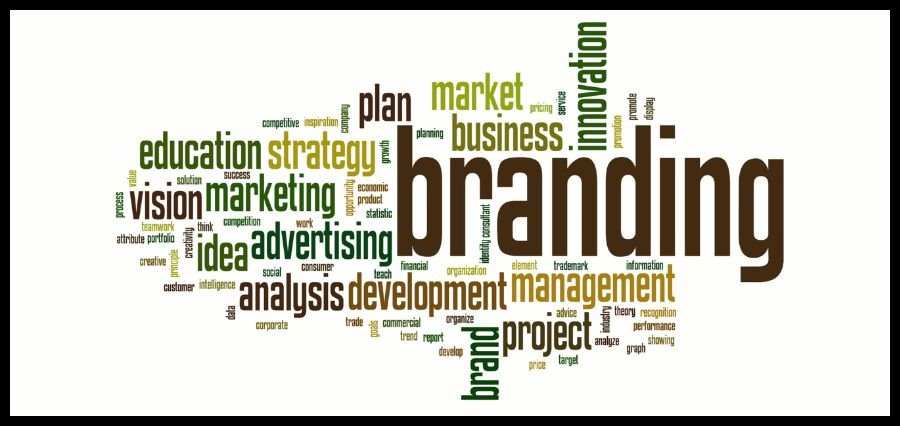Liberating the Potential of Business Branding within an Open Market
In the current fast-paced and hyper-competitive business environment, your brand is no longer a logo or slogan—it’s the soul and spirit of your company. Business branding is the art of creating a strong positive perception of your company, services, or products in your target audience’s minds. Be a new startup setting your niche or a mature competitor trying to keep up, getting business branding right is your key to enduring success.
What is Business Branding?
Basically, business branding is the unification of all that reflects your identity in the market. Your visual identity, voice tone, company values, customer experience, and even how your employees interact with customers are all part of it. Branding isn’t concerned with how it looks—it’s concerned with stories, emotional connection, and trust.
Picture your company as a person. Branding provides it with a name, personality, voice, and values that infuse all of the experience. It’s what makes your company stand out amidst a sea of faces.
Why Business Branding Matters
-
Differentiation
An overcrowded-to-the-point-of-breathlessness marketplace results in products and services becoming look-alikes and feel-alikes. Successful business branding produces a differentiated space in your customer’s mind, and that separates you.
-
Trust and Credibility
Consistent Brand Image Builds Trust
A consistent brand image makes people trust you. If your customers are aware and familiar with your brand, then they are more likely to opt for your product or service over the other one.
-
Emotional Connection
No one buys products—They buy stories, moments, and feelings. A strong brand makes emotional connections that eventually create customer loyalty.
-
Customer Loyalty
A great, dependable brand turns customers into brand fans. They don’t merely come back, they’re brand champions now.
-
Financial Value
Iconic brands are worth their weight in gold. Business branding indeed increases your business’s perceived value larger, more valuable to customers and investors.
Key Elements of Effective Business Branding
When building a great brand, turn to these essential elements:
1. Brand Purpose and Values
What do your business believe in? Why are they around and why should they care? Consumers today desire meaningful brands with values. Ensure your mission is well stated and ingrained in all your branding.
2. Target Audience
You cannot sell to everyone. Decide who your target audience is and shape your brand messaging, tone, and imagery into what they require, think, and want.
3. Visual Identity
This includes your imagery aesthetic, color scheme, typography, and logo. Visual coherence across all media is guaranteed to create brand awareness and professionalism.
4. Brand Voice and Messaging
Your brand voice of voice—tough, playful, bold, or empathetic—needs to reflect your brand personality. Messaging consistency guarantees that your audience is being provided with clear and compelling messaging.
5. Customer Experience
Business branding is not face-outward—face-inward too. From first-website-visit to after-purchase service, all contact points must mirror your values and brand promise.
Branding in the Digital Age
In the wake of the digital revolution, business branding changed overnight. Social media websites, word-of-mouth online, influencer marketing, and cyber advertising made branding simple—and complicated.
Some of the best methods of attaining digital branding success:
- Website Optimization: Your site is likely to be the initial contact people have with your business. Make it properly designed, mobile responsive, and search engine friendly.
- Content Marketing: Design high-quality, valuable, and relevant content that is governed by your business values and showcases your expertise.
- Social Media Presence: Take advantage of locations where your target group gathers in a bid to engage, inspire, and interact. Be genuine and reliable.
- Reputation Management: Monitor online reviews and feedback. Respond to complaints directly and promptly to build trust.
Most Popular Branding Blunders to Avoid
With the best intentions, companies fall prey to these most popular branding blunders:
- Inconsistency: Continuously going back and forth between logo, message, and tone will leave your audience confused and in shambles.
- Insincerity: Imitating trendy brands without a unique voice will make your brand seem hollow.
- Neglecting Internal Branding: Your employees are your brand ambassadors. Forgetting to make sure your internal culture reflects your external image can cost credibility.
- Neglecting Feedback: Feedback from customers is gold. Forgetting feedback is forgetting opportunities to enhance your brand for the better.
Measuring Branding Success
Business branding is abstract, but its impact can be measured. Among the most important key performance indicators (KPIs) are:
- Brand Awareness: Track website traffic, search engine searches, and social media referrals to your brand.
- Customer Loyalty: Track repeat orders and Net Promoter Score (NPS) to check customer happiness.
- Market Share Growth: Growing share of your market shows good branding and positioning.
- Perceived Value: Gather feedback from your customers about quality, reliability, and suitability of your brand.
The Future of Business Branding
The future belongs to socially responsible, transparent, and inclusive brands. Consumers, especially Gen Z and Millennials, are attracted to those that are standing for something they care about. Sustainability, diversity, and socially responsible business practices are not niceties—necessities.
Artificial intelligence and personalization will also revolutionize how companies engage with branding. Brands that leverage data to provide personalized experiences will be a giant winner.
In Conclusion
Business branding isn’t advertising—it’s a business necessity. A strong brand does more than win customers—it forges communities, drives loyalty, and creates growth. Whether you’re starting from ground zero or working with one you already possess, investing in your brand is investing in tomorrow.
Begin with authenticity, remain consistent, and never start with deception. Because in a world where everything is quick, a strong brand is your anchor—and your catapult.
Read More: Smart Infrastructure for Smarter Industry: Building the Backbone of Digital Operations

